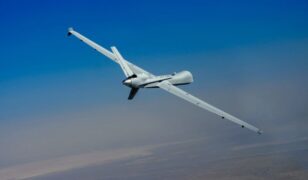DRS Technologies and DARPA enhance performance of cooled infrared sensors
 DRS Technologies Inc., a Leonardo-Finmeccanica Company based in Arlington, VA, announced on May 23 that it has been awarded a contract by the Defense Advanced Research Projects Agency (DARPA) to enhance performance of the company’s ultra-small pixel infrared focal plane arrays (FPA) under the agency’s Lambda Scale program.
DRS Technologies Inc., a Leonardo-Finmeccanica Company based in Arlington, VA, announced on May 23 that it has been awarded a contract by the Defense Advanced Research Projects Agency (DARPA) to enhance performance of the company’s ultra-small pixel infrared focal plane arrays (FPA) under the agency’s Lambda Scale program.
Improvements to the FPAs will potentially enhance technology that can help pilots see more clearly in conditions that previously caused severe safety concerns. The DARPA-funded Lambda Scale program is focused on the ground-breaking reduction in traditional infrared detector pixel pitches to help reduce the size, weight and power of systems, including handheld sights and distributed aviation sensors for situational awareness.
FPAs are fabricated utilizing a patented high-density capacitance process and state-of-the-art thin-film deposition technology. It creates a 3-dimensional high-density capacitor structure on the Readout Integrated Circuits (ROICs), enhancing the charge storage capacity of each pixel in the ROIC. This approach has been demonstrated by DRS on 5um and 6um pitch sensors and further demonstrates that larger pixel count FPAs with increased resolution are feasible in small tactical packages that enable smaller system footprints.
“DRS continues to develop innovative ways to increase pixel count in cooled and uncooled infrared sensors to bring our customer a significant advantage in the field. This new process opens the door to revolutionary advances in the design of infrared imaging systems of the future,” said Shawn Black, vice president and general manager of DRS Infrared Sensors & Systems line of business. “These are substantial improvements in infrared sensor capability for mission-critical applications, such as the degraded visual environments that helicopters experience, where image quality and clarity could prove to be critical to the safety of our helicopter pilots and crewmembers.”
Source: DRS Technologies







